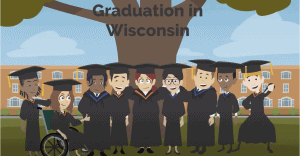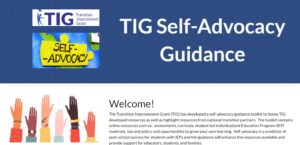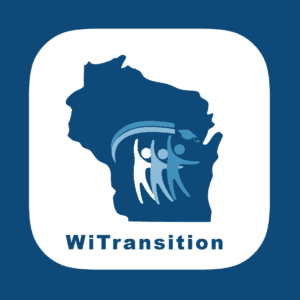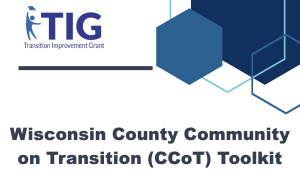FAQ
It is our honor to celebrate progress in student outcomes in Wisconsin schools. Here are the answers to our most frequently asked Wisconsin RtI Center Recognized School program questions.
If you have an inquiry that is not answered below, please contact us.

General
What is the purpose of the Recognized Schools Program?
The Recognized Schools program encourages schools to expand, refine, and sustain full implementation of an equitable, multi-level system of supports. By providing a picture of full implementation and recognizing schools during the implementation journey, we encourage and celebrate progress in equitable student outcomes.
Website badge
Certificate
Create and print your customizable certificate
Media kit
Download an editable Microsoft Word version
Note: Digital awards on this page are for recognition for the 2017-18 school year. If you need to access digital awards for the 2016-17 school year, please contact Kate Higley.
What is meant by a content area?
There are three content areas for recognition: behavior, mathematics, and reading.
What is “full implementation” and why is it important?
In Wisconsin, a fully-implemented system is equitable, and provides increasing levels of student supports for all three content areas (behavior, mathematics, and reading). The three levels of student supports are known as universal (tier 1), selected (tier 2), and intensive (tier 3).
This is important because research tells us that full implementation leads to improved student outcomes.
What are the levels of recognition?
There are four levels of recognition: bronze, silver, gold, and platinum.
- Bronze: At full implementation/fidelity in one content area at the universal level (tier 1) for at least one year
- Silver: At full implementation/fidelity in one content area at the universal level (tier 1) for at least two years and at selected (tier 2) level for at least one year
- Gold: At full implementation/fidelity in two content areas at the universal (tier 1) and selected (tier 2) levels for at least two years
- Platinum: At full implementation/fidelity in all three content areas, at all three levels (universal, selected, and intensive), and for at least three years
System Self-Assessments
Why does our school have to self-assess our implementation to be recognized?
System self-assessment is critical to identifying areas of strength and uncovering areas for improvement in your implementation. This gives your school essential information to make changes that lead to improvements in student outcomes.
What system self-assessments are required at each level of recognition?
Bronze:
- Self-Assessments: A minimum score of 70% on the Benchmarks of Quality (BoQ) or Tiered Fidelity Inventory (TFI) at the universal level for the current year, OR a minimum score of 80% on the Schoolwide Implementation Review (SIR) at the universal level for the current year.
- Staff Assessments: Must have completed the Self Assessment Survey (SAS) or Wisconsin RtI Center All-Staff (RtI All Staff) during the current year.
Silver:
- Self-Assessments: A minimum score of 70% on the BoQ or TFI universal level for two consecutive years and a minimum score of 80% on the Benchmarks for Advanced Tiers (BAT) or 70% on the TFI at the selected level for current year AND/OR a minimum overall score of 80% on the SIR at the universal level for two consecutive years and at the selected level for the current year.
- Staff Assessments: Must have completed the SAS or RtI All-Staff for current and prior school year. Demonstrated improvement required.
Gold:
- Self-Assessments: Minimum scores of 70% on the BoQ or TFI at the universal level and a minimum score of 80% on the BAT or 70% on the TFI at the selected level for two or more consecutive years AND/OR minimum overall scores of 80% on the SIR at both the universal and selected levels for two or more consecutive years.
- Staff Assessments: Must have completed the SAS AND/OR RtI All-Staff with an implementation average of at least 80% for the past two consecutive years.
Platinum:
- Self-Assessments: Minimum scores of 70% on the BoQ or TFI and 80% on the BAT at all levels for three or more consecutive years AND minimum overall scores of 80% on the SIR for both content areas for three or more consecutive years.
- Staff Assessments: Meet the requirements for gold level at least once. Complete SAS or RtI All Staff during the current year with an 80% average.
How do we know what assessments our school has taken, and when did we take them last?
You can see the dates and results of your school’s self-assessments by visiting:
A login is required to obtain information. If your school or district needs assistance with your login, please contact your regional technical assistance coordinator.
When do assessments have to be completed?
Assessments for the 2019-20 school year must be completed between:
May 1, 2019, and April 30, 2020
Assessments for the 2018-19 school year must be completed between:
May 1, 2018, and April 30, 2019
Assessments for the 2017-18 school year must be completed between:
May 1, 2017, to April 30, 2018
What if our assessments are scheduled after the initial invitations for gold and platinum are sent?
The center monitors assessments taken between the time invitations are sent, and before the April 30 deadline, to determine if additional schools need to be invited to apply.
Training
What trainings are required to be eligible for the different levels of recognition?
Bronze: Attended training in one content area
- Reading: Wisconsin RtI Framework or Reviewing Universal Reading Instruction
- Mathematics: Wisconsin RtI Framework Framework or Review Universal Mathematics Instruction
- Behavior: universal (tier 1)
Silver: Attended training in one content area
- Reading and/or Mathematics: Wisconsin RtI Framework
- Behavior: universal (tier 1) and selected (tier 2)
Gold: Attended training in two content areas
- Reading/Mathematics: Wisconsin RtI Framework AND/OR
- Behavior universal (tier 1) and selected (tier 2)
Platinum: Attended training in all content areas
- Reading and Mathematics: Wisconsin RtI Framework AND
- Behavior universal (tier 1), selected (tier 2) , and intensive (tier 3)
For more information about Wisconsin RtI Center training, view our Training and Supports Catalog.
How can we find out what training our school or district has taken?
A school or district is considered trained in a content area when:
- they have sent a team of at least three people to all days of the training series, and
- the training was completed by April 30 of the current year.
Contact your regional technical assistance coordinator to find out more about your training history.
Application
How does our school apply?
For bronze and silver levels of recognition, you don’t need to do anything to apply!
To make it easier for schools to be recognized at the bronze and silver level, the center tracks training and assessment completion to determine which schools qualify for these levels. In early June, schools that have been awarded these levels will be announced.
Based on our assessment and training records, invitations will be extended in March or April to schools that are eligible to apply for gold and platinum level recognition.
If our school is invited to apply for gold or platinum, is there other information we will need to supply?
Yes. You will be asked for additional information about your improvement in outcomes for all students and underserved student groups. Also, examples of culturally responsive practices and inclusion of student and family voice will be required.
What if our school is taking an assessment after the invitations to apply for gold or platinum recognition have been sent?
The center will review assessment scores to ensure all eligible schools are invited to apply.
If our school is not invited to apply for gold or platinum, can we still apply for those levels of recognition?
These levels are by invitation only.
Timeline
What is the timeline for the Recognized Schools program?
Initial communication will be sent in late March to schools that qualify for gold or platinum. They will be asked to submit additional information by April 30. All assessments must be completed by April 30. Awarded schools will be announced in early June.
What are the date ranges for taking self- and staff assessments for this year’s Recognized Schools program?
Assessments must be taken between May 1 and April 30 to be considered for the current school year.
For example:
Assessments for the 2019-20 school year must be completed from:
May 1, 2019 to April 30, 2020
Assessments for the 2018-19 school year must be completed from:
May 1, 2018 to April 30, 2019
Assessments for the 2017-18 school year must be completed from:
May 1, 2017 to April 30, 2018
When would our school be contacted to apply for gold or platinum level?
Initial contact would be in late March. The center will monitor assessments taken after this date and before April 30 to determine if additional schools need to be invited to apply.
What is the timeline for receiving the awards’ packages?
Award packages will be distributed during the PBIS Leadership Conference. Recognized schools not in attendance, will receive their award package in the mail after the conference.
Awards
What does our school receive for each level of recognition?
View our document outlining the award package at each level.
Can our school receive recognition for multiple levels?
Yes, you can receive recognition in multiple areas. For example, a school might be at silver level for behavior implementation, and at bronze level for mathematics.
How will our school receive the awards package?
In early June, letters and e-mail communication will be sent to school principals and district superintendents. At the same time, the center will update their website and announce schools via various social media channels. If the awards package includes conference registration, the center will contact schools in June to gather registration information.
Additional information on award packages will be distributed at the PBIS conference or mailed to schools not in attendance in August.




 TIG Self-Advocacy Guidance Google Site
TIG Self-Advocacy Guidance Google Site 
 Wisconsin County Community on Transition (CCoT) Toolkit
Wisconsin County Community on Transition (CCoT) Toolkit 